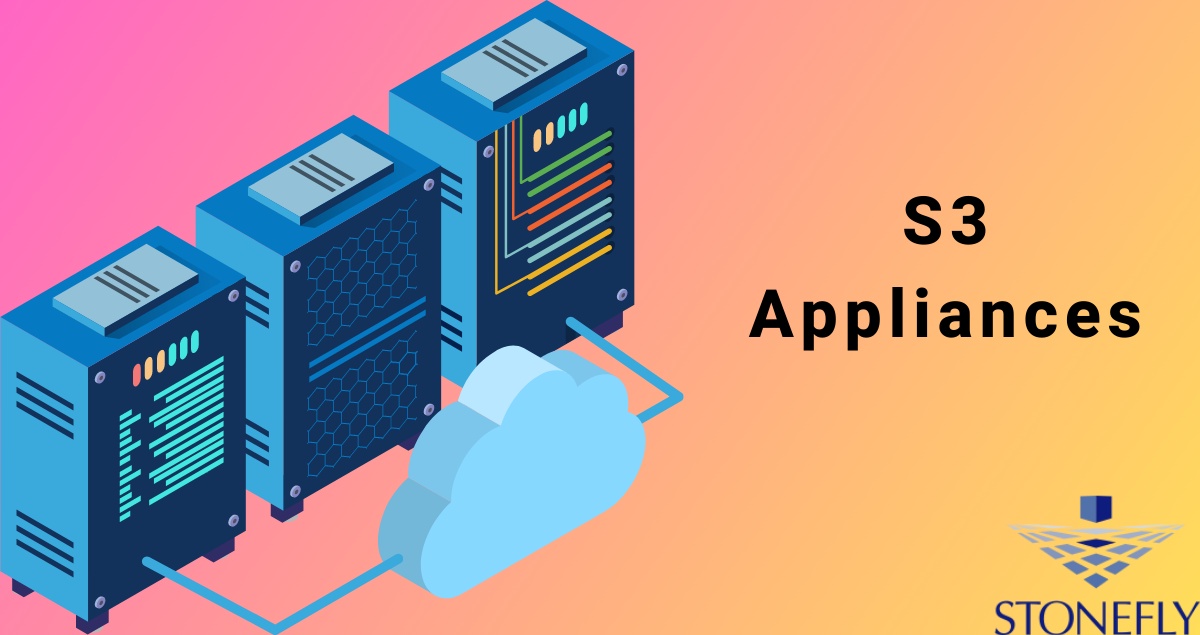The Benefits and Limitations of S3 Appliance: A Comprehensive Guide
Are you looking for a reliable, secure, and efficient storage solution for your data? Look no further than S3 Appliance. Developed by StoneFly, a leading provider of integrated enterprise solutions, the S3 Appliance offers a versatile and cost-effective approach to storing your data.
In this guide, we will explore the different types of S3 Appliance, its numerous advantages and disadvantages, as well as some tips to help you get the most out of it. Whether you are a small business owner or an IT professional, this comprehensive guide will provide you with all the necessary information to make an informed decision about using S3 Appliance for your storage needs.
What is S3 Appliance?
S3 Appliance is a storage solution that utilizes the Simple Storage Service (S3) protocol for storing and retrieving data. S3 is a cloud-based object storage service that allows users to store and retrieve any amount of data from anywhere on the web. S3 Appliance takes this technology a step further by providing an on-premises storage solution that offers the benefits of cloud storage without having to rely on an internet connection. This makes it an ideal choice for organizations that require both the flexibility and security of a cloud-based storage system, while also needing physical control over their data.
Types of S3 Appliance
There are five main types of S3 Appliance:
1. Axiom S3 Appliance
The Axiom S3 Appliance is a single-node storage solution that offers scalable and high-performance storage capabilities. It can easily handle large amounts of data and supports multiple access protocols, including NFS, SMB, iSCSI, and Fibre Channel.
2. Voyager S3 Appliance
The Voyager S3 Appliance is a multi-node storage solution that offers high availability and disaster recovery capabilities. It utilizes a clustered architecture to provide fault tolerance and data redundancy, making it an ideal choice for businesses with critical data.
3. Voyager NAS Gateway
The Voyager NAS Gateway is a hybrid storage solution that combines the benefits of on-premises Storage with the scalability of cloud storage. It allows users to seamlessly migrate data between their on-premises storage and cloud storage providers like S3, Microsoft Azure, or Google Cloud Storage.
4. Scale Out NAS
The Scale Out NAS is a highly scalable and cost-effective storage solution that uses a distributed file system for storing data. It can easily be expanded by adding more nodes to the cluster, making it an ideal choice for organizations that need to store large amounts of data.
5. Cloud Connect
The Cloud Connect is a software-defined storage solution that enables organizations to connect their on-premises storage systems with cloud storage providers. It allows users to easily transfer data between different storage platforms while maintaining control and visibility over their data.
Pros and Cons of S3 Appliance
Pros:
Cost-effective:
The S3 Appliance offers a cost-effective storage solution, allowing organizations to save on hardware and maintenance costs.
Scalability:
With its various types and configurations, the S3 Appliance can easily scale to accommodate any amount of data.
Security:
Since the S3 protocol is used for encryption and data transfer, S3 Appliance offers a high level of security for your data.
Versatility:
S3 Appliance supports multiple access protocols and can be used for various data storage needs, making it a versatile solution.
On-premises control:
Organizations have complete physical control over their data with the on-premises S3 Appliance, providing added peace of mind.
Cons:
Internet dependency:
While S3 Appliance offers the benefits of cloud storage, it still requires an internet connection for data transfer and access.
Initial setup and configuration:
Setting up and configuring the S3 Appliance may require technical expertise and can be time-consuming.
Limited hardware options:
Since S3 Appliance is a proprietary solution, users are limited to hardware provided by StoneFly.
Maintenance costs:
While S3 Appliance may save on hardware costs, regular maintenance and updates can still incur additional expenses.
Limited cloud storage options:
S3 Appliance only supports a select few cloud storage providers for data migration and integration.
Tips for Using S3 Appliance
1. Understand your storage needs:
Before choosing an S3 Appliance solution, it is essential to assess your data storage requirements, including the amount of data, access protocols needed, and scalability considerations.
2. Consult with experts:
If you are not familiar with the technicalities of setting up and configuring S3 Appliance, consult with StoneFly experts who can provide guidance and assistance.
3. Consider hybrid solutions:
For organizations with fluctuating data storage needs, a combination of on-premises and cloud storage through the Voyager NAS Gateway or Cloud Connect can offer the best of both worlds.
4. Keep up with maintenance:
To ensure the smooth functioning of your S3 Appliance, it is crucial to keep up with regular maintenance and updates.
5. Utilize data compression:
With S3 Appliance's support for data compression, you can reduce storage costs by storing more data in less space.
6. Take advantage of built-in security features:
S3 Appliance offers various security features like encryption, access controls, and secure transfers that can help protect your data.
7. Plan for disaster recovery:
For critical data, consider a multi-node solution like the Voyager S3 Appliance that offers built-in disaster recovery capabilities.
8. Consider long-term costs:
While S3 Appliance may offer cost savings initially, it is vital to consider long-term maintenance and upgrade costs when making a decision.
Conclusion
S3 Appliance provides a flexible and secure storage solution for organizations of all sizes. With its various types, scalability, and versatility, S3 Appliance offers the benefits of cloud storage while still providing physical control over your data. By keeping these tips in mind, you can make the most out of your S3 Appliance and ensure that your data is stored efficiently and securely. So, if you are considering S3 Appliance for your organization's data storage needs, consult with StoneFly experts and explore the different options available to find the best fit for your business.
FAQs
Q: Can I use S3 Appliance with any cloud storage provider?
A: No, S3 Appliance only supports a select few cloud storage providers for data migration and integration, including Amazon S3, Microsoft Azure, and Google Cloud Storage.
Q: Is technical expertise required to set up and configure S3 Appliance?
A: Yes, setting up and configuring S3 Appliance may require technical expertise. It is recommended to consult with StoneFly experts for assistance.
Q: Does S3 Appliance support disaster recovery?
A: Yes, some types of S3 Appliance, such as the Voyager NAS Gateway, offer built-in disaster recovery capabilities. It is essential to plan for disaster recovery when considering your storage needs.
Q: What is the difference between S3 Appliance and Cloud Connect?
A: S3 Appliance is an on-premises storage solution, while Cloud Connect enables organizations to connect their on-premises storage systems with cloud storage providers. They serve different purposes but can be used together for a hybrid solution.
Q: Can I use data compression with S3 Appliance?
A: Yes, S3 Appliance supports data compression, allowing you to store more data in less space and reduce storage costs. So, make sure to utilize this feature for efficient storage management.


No comments yet